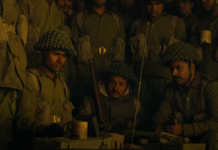The Netflix psychological thriller Adolescence is captivating audiences, especially with its unique narrative style—each of its four episodes unfolds in a single, continuous long take. The series explores the aftermath of a young boy’s arrest, with timelines spanning from the day of the event to 13 months later. The suspense builds as viewers must piece together the fragmented stories in real-time, making for a gripping viewing experience.
Bollywood director Karan Johar, a parent of twins, shared his reflections on the series via Instagram, offering his perspective on the profound impact it has had on him. Johar’s comments shed light on the relevance of the show’s themes in today’s parenting landscape, particularly in a digital world full of comparisons and bullying.
He reflected on the trials of modern-day parenting. Johar discusses the emotional struggles faced by both parents and children, praising a recent mini-series for addressing these challenges and offering valuable lessons. As a parent to twins, Johar emphasized how this series has heightened his awareness of his parenting responsibility.
This post sheds light on the evolving dynamics of parent-child relationships in an increasingly digital world, offering a candid perspective on raising children amidst the pressures of social media. His insights offer valuable context for understanding the emotional complexities the series brings to the forefront, resonating with both parents and viewers alike.
For those unaware, Adolescence, the gripping Netflix miniseries, is the brainchild of co-creators and writers Stephen Graham and Jack Thorne. The series was inspired by real-life incidents of violent crimes committed by young boys, which deeply disturbed Graham. All four episodes serve as a timely reminder of the emotional intricacies of growing up and the responsibility parents hold in shaping their children’s lives.
This series is more than just entertainment; it is an important piece of work that challenges viewers to ask difficult questions. It does not demonise anyone, nor does it offer clear answers or blame. Instead, it encourages open conversation and reflection on the problems affecting today’s youth and the larger societal implications. The celebrity reactions to Adolescence further underscore its role as a wake-up call for parents, urging them to engage in deeper conversations about the challenges their children face in a rapidly evolving world.












